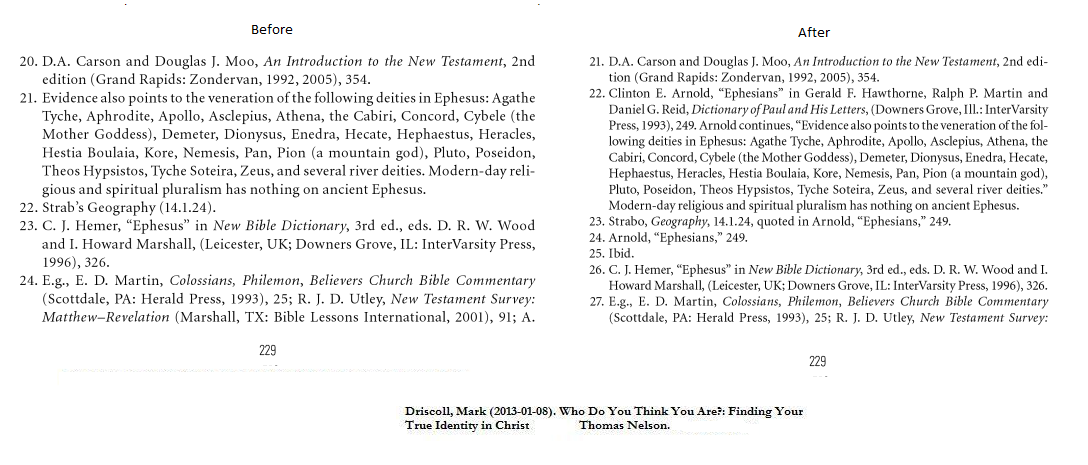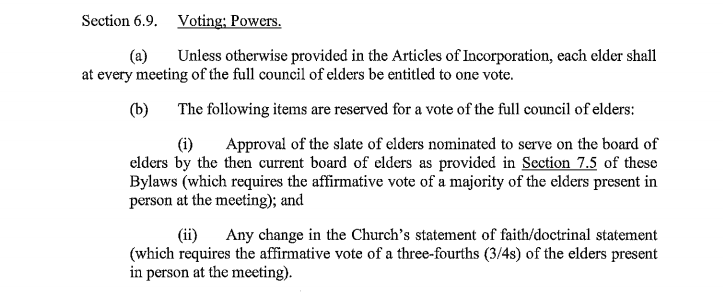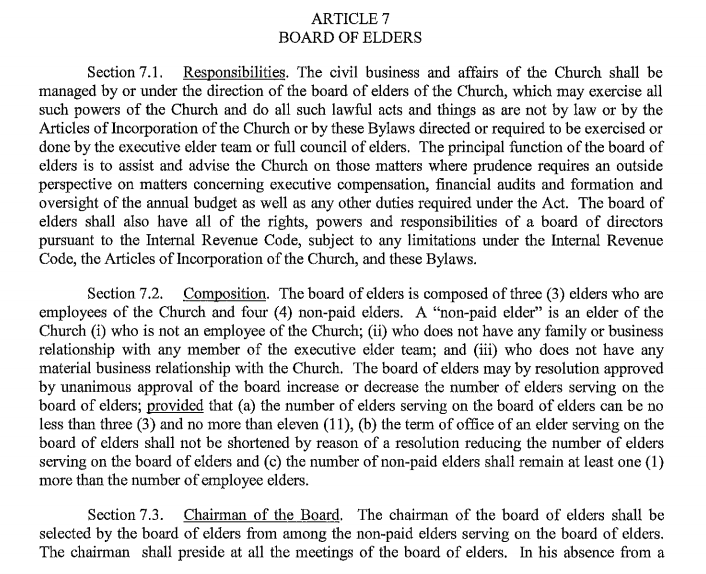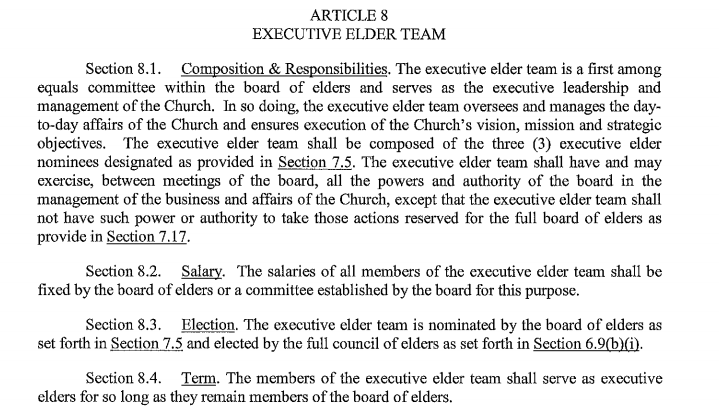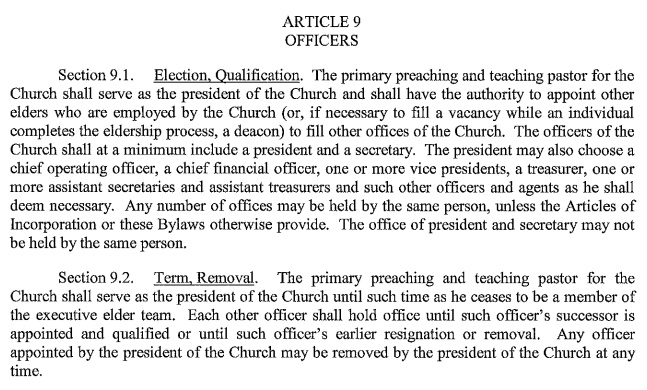On Wednesday, Ruth Graham, writing in The Atlantic, quoted the president of the Evangelical Council for Financial Accountability Dan Busby as saying that schemes such as the one which resulted in Mark Driscoll’s book Real Marriage showing up on various best seller lists are “unethical and deceptive.” Since the whole thing took place before Mars Hill became a member of ECFA, there will be no consequences of the scandal with that group (even though MHC and Driscoll benefited from the contract after the church became an ECFA member).
I contacted Busby for elaboration on his assessment and he added some detail to his comments regarding the relationship between churches and products created by organization leaders. Busby told me in an email:
It is unethical and deceptive for ECFA-accredited churches (and other organizations) to:
a. make efforts to mask the method of procuring products authored or developed by an organization’s leader in order to improve product ratings, and/or
b. procure products authored or developed by an organization’s leader at a higher price than otherwise available for the sake of improving product ratings, even if there is a valid ministry purpose for paying the higher price.
Busby pointed to a ECFA Advisory Opinion on the subject which is as follows:
Product Procurement
Overview. The leaders of many ECFA members author or develop various intellectual properties, including books. Royalties received by these leaders for intellectual properties owned by the ECFA member should be considered as one of the elements of compensation when the organization’s governing body determines compensation for the leaders.
Additionally, the organization’s governing body should ensure that the organization is not involved in unethical and deceptive practices relating to the procurement of products authored or developed by its leaders. The appropriate avenues with which to procure products should be reviewed against the backdrop of ECFA’s Standards 1, 4, and 6.
Standard 1 – Biblical truths and practices. “Every member shall subscribe to a written statement of faith clearly affirming a commitment to the evangelical Christian faith, or shall otherwise demonstrate such commitment and shall operate in accordance with biblical truths and practices.”
In several of his letters, the Apostle Paul stresses the importance of being beyond reproach and behaving in such a way as to avoid even the appearance of wrong-doing. He tells us that we need to be circumspect to those outside the Church. The reason Paul most often gives is that we must not give Satan any opportunity to destroy the reputation of Christ. Arguably, and in an eternal sense, it may be true that the business of ministries and churches is of concern to God and not to others judging from the outside. However, Scripture is also very clear about our need to be open, honest, and above reproach as we wrestle with the issues of life before Christ’s return. As the Apostle Paul said, “For we are taking pains to do what is right, not only in the eyes of the Lord but also in the eyes of men” (2 Corinthians 8:21).
Standard 4 – Use of Resources. “Every member shall exercise the appropriate management and controls necessary to provide reasonable assurance that all of the member’s operations are carried out and resources are used in a responsible manner and in conformity with applicable laws and regulations, such conformity taking into account biblical mandates.”
The use of resources in a responsible manner includes managing resources in a God-honoring way. An organization that has expended assets in an unwise manner may diminish its own Christian witness.
Standard 6 – Compensation-Setting and Related-party transactions. “Every organization shall set compensation of its top leader and address related-party transactions in a manner that demonstrates integrity and propriety in conformity with ECFA’s Policy for Excellence in Compensation-Setting and Related-Party Transactions.”
Analysis. In reviewing these Standards and their related commentaries against certain methods in which products may be procured, the ECFA Board, Standards Committee, and Staff found the following:
A potential conflict of interest arises when an organization’s leader decides the organization will promote or purchase books authored by the leader, with the leader receiving royalties on the books. This risk of a conflict-of-interest is heightened when, in relation to products authored or developed by leaders of ECFA members, (a) products are purchased at a higher price than is required and/or (2) there is an effort to mask the method of procuring products in order to improve product rating.
ECFA members must avoid an actual conflict-of-interest by utilizing the related-party transaction process outlined in ECFA’s Policy for Excellence in Related-Party Transactions when purchasing products authored by an organization’s leader.
If an organization pays a higher price than required for procuring products authored or developed by leaders of an ECFA member, there must be a valid ministry purpose for paying the higher price. Otherwise, the excess expenditure of funds is for a non-ministry purpose.
Where an organization attempts to mask the method of procurement from organizations that determine product ratings, ECFA believes such practices are not in accord with biblical truths and practices.
ECFA’s Positions. It is unethical and deceptive for a member organization to:
- make efforts to mask the method of procuring products authored or developed by an organization’s leader in order to improve product ratings, and/or
- procure products authored or developed by an organization’s leader at a higher price than otherwise available for the sake of improving product ratings, even if there is a valid ministry purpose for paying the higher price.
This opinion clearly applies to the RSI-Mars Hill partnership. The method of moving the books was masked in order to fool those who make up the best seller lists and books were purchased at retail price in order for them to count for purposes of the “improving product ratings.” I appreciate the ECFA guidance on this matter and hope that it informs practice in the evangelical community.
Initially Mars Hill Church called the scheme an “investment” and “opportunity” but then changed direction a bit calling the contract “unwise.” I wonder if the church or maybe even Driscoll himself will ever step up and agree with the ECFA.
To see all posts on Mark Driscoll and Mars Hill Church, click here.
